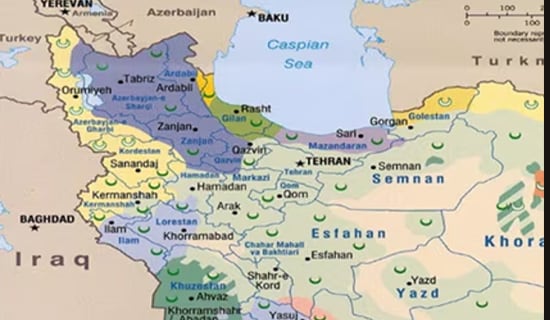Introduction
Since the Palestinian Authority was established, dozens of citizens have been found guilty of treason by its civil, military, and state security courts. The offenses have included passing information to foreign countries, murder and rape. Many of the guilty Palestinian civilians have been sentenced to death by firing squad. [1] However, to date only a few of these death sentences have actually been carried out.
According to the Basic Palestinian Law, which serves as the interim Palestinian constitution, "the death sentence will not be carried out by any court except after being approved by the president of the Palestinian National Authority." [2] During his rule, previous PA Chairman Yasser Arafat approved a small number of executions; now, the cases of those condemned to death await the approval of PA Chairman Mahmoud Abbas (Abu Mazen). [3]
Approval of Executions in the Context of the PA's Reform Program
Recently, a number of leading Palestinian officials announced the PA's intention to carry out pending death sentences. Northern Gaza Governor Sakhr Bsiso announced that Abu Mazen recently approved [the carrying out of] a number of death sentences. [4] As the Palestinian Justice Minister Farid Al-Jallad explained, "The PA will carry out the death penalty with regard to a number of Palestinians accused of collaboration and passing information to Israel." [5] Military Justice System Director Saeb Al-Qidwa even announced that "the executions will be carried out by the security apparatuses, under the supervision of the civil and military judicial apparatuses." [6]
It should be noted that the Palestinian Minister of Justice Farid Al-Jallad and the Mufti of the PA Ikrima Al-Sabri explained that those who were sentenced to death, especially those sentenced by military courts for expedited justice and state security courts that were abolished in July 2003, can turn to the Palestinian cabinet to request a retrial. According to Al-Jallad, the Palestinian Ministry of Justice has already received two such requests. [7]
The Palestinian factions and the families of the crime victims have been pressuring the PA to carry out the executions. Thus, for example, on February 5, 2005, a group of some 100 gunmen burst into a Palestinian Legislative Council session in Gaza, expelled the police personnel who were present, and took over the building. According to an investigation of the incident by the Al-Mezan Human Rights Center, the gunmen were representing a group of families who had lost members in violent incidents in the PA, and they had burst into the building to pressure the PA to execute their relatives' murderers. According to the investigation's findings, the group left the building after a brief meeting between Abu Mazen and the heads of the families. [8]
The Union of Palestinian Ulama urged Abu Mazen to quickly approve the executions "in order to prevent bloodshed, to curb the domestic social situation, and to act to guarantee security and the stability of the regime." [9]
Abu Mazen's intention to carry out executions is perceived as an attempt to enforce the rule of law in the PA. Recently, there have been many incidences of blood vengeance in the PA by families of murder victims, because the death sentences were not being carried out and some of the criminals were even walking free instead of being imprisoned. [10]
Member of Fatah and PLC: Executions Restore "Atmosphere of Security and Tranquility"
Senior Palestinian officials noted that the executions were to be carried out in the context of the implementation of reforms in the PA, and that this measure was aimed at ending the anarchy and giving Palestinian citizens a sense of security. Abbas Zaki, member of the Fatah Central Committee and of the Palestinian Legislative Council, said that Abu Mazen's approval of executions was part of "a long list of measures to be carried out in the context of the reform and growth program, and it was aimed at bringing an atmosphere of security and tranquility to the homeland and to the citizens, and to provide the required protection for the citizens and their property." He stated, "[Dealing with] these issues cannot be postponed… Moreover, carrying them out will show the degree of internal cohesion and the sincere intention of all to march towards reform and to attempt to restore respect for the law and the judicial system and their independence." [11]
Director of the Military Justice System Saeb Al-Qidwa told journalists in Gaza that carrying out the death sentences would "help in instituting security… The security anarchy existing today requires a radical solution." [12]
Political commentator Talal Awkal explained that Abu Mazen's move to carry out the pending executions proves that he is "serious [in his intention] to advance towards domestic reform, particularly at the judicial level… The goal behind this move is to strengthen the judicial system, to deter those who take the law into their own hands, and to prove that the [Palestinian] Authority is serious in its measures to restore order and to put an end to the anarchy." [13]
Executions Approved After PA Mufti Agrees
Before approving the carrying out of death sentences, Abu Mazen consulted with PA Mufti Sheikh Ikrima Sabri. According to Abbas Zaki, Abu Mazen passed the files of 51 condemned men on to Sabri and official religious authorities, "instructing them to quickly study the cases and rule on them in the shortest possible time, since it is not possible to defer or delay [dealing with] issues of this kind." [14]
According to Director of the Military Justice System Saeb Al-Qidwa, Sabri has so far approved approximately 15 executions; however, a source close to the Mufti told Al-Jazeera TV that Sabri had approved only five. [15] Sakhr Bsiso said that after receiving the Mufti's approval, Abu Mazen approved several executions. [16]
Ikrima Sabri told the Palestinian daily Al-Hayat Al-Jadida that he saw Abu Mazen's passing the cases on to him as a reflection of "a desire on the part of the Palestinian leadership to ask for the opinion of the Islamic Shari'a in order to reinforce its legal position, so that innocent people not be punished and so that justice be done… The Islamic Shar'ia considers the killing of a man [as equivalent to] the killing of [the entire] society, as stated in Verse [32] of Chapter Al-Maida [Chapter 5]: 'Whoever killed a human being, save as punishment for murder or moral corruption in the land, shall be regarded as having killed all mankind; and whoever saved a human life, it shall be as if he saved all mankind;' and as Allah said [Koran 2:179]: "In [the law of] retaliation there is life for you." This means that Allah emphasized that carrying out the death penalty for a criminal who committed premeditated murder is aimed at protecting society and preventing people from wreaking vengeance and taking the law into their own hands." [17]
Human Rights Organizations Oppose Executions
Palestinian human rights organizations oppose carrying out the executions, even claiming that some of the trials of the condemned men had not been fair at all. The Palestinian Center for Human Rights in Gaza stated that the death penalty was "one of the most abhorrent of punishments, and action must be taken to abolish it throughout the world, particularly in Palestine, because it contradicts the right to life… Abolishing this punishment does not mean indulging those accused of serious crimes, including collaborators, but rather that we must think of punishments that deter and at the same time preserve our humanity." [18]
Yasser Alawna, coordinator of The Palestinian Independent Commission for Citizens' Rights (PJCCR), which is located in the northern West Bank, explained: "I personally am against carrying out death sentences, particularly since we have documentation that in a number of cases someone was executed who later turned out to be innocent, and the verdict had been handed down [only] to placate local public opinion… Carrying out the [death] sentence will mar the image of the [Palestinian] Authority, particularly since it has stated in its Basic Law that it is bound by international laws and norms protecting human rights." According to Alawna, "we must use all [legal] processes to assure a clean and fair trial for all accused, such as giving them the right to defend themselves, to appoint attorneys for them, and that [their cases] be first presented to the prosecution, [19] [to allow] monitoring of their investigation, and also [to give them] the right of appeal. [Similarly,] the most important thing is that they be tried in civil, not military, courts…" [20]
Director of the Judicial Department of The Palestinian Independent Commission for Citizens' Rights Hussein Abu Hanoud, explained that like the rest of the human rights organizations, his organization is calling for the abolition of the death penalty. He also criticized the state security courts which, he says, "do not guarantee a fair trial to people who have been sentenced to death." [21]
On February 17, the Palestinian Human Rights Monitoring Group issued a press release in English stating: "On Monday, February 14, 2005, Sakher Bseso, the governor of Gaza, announced that President Mahmoud Abbas (Abu Mazen) had transferred 51 civil and military cases of persons that had been sentenced to death to the Mufti (interpreter of Islamic law) of Jerusalem, Sheikh Akermah [Ikrima] Sabri. President Abbas gave the responsibility to Sheikh Akermah [Ikrima] Sabri to decide whether to execute them or not.
"According to our statistics, 68 Palestinians had been sentenced to death since the establishment of the Palestinian Authority (PA) in 1994. Of the 68 cases, execution was implemented on 6 people and 4 others were shot to death by Palestinian gunfire.
"The PHRMG believes that it is a confusing situation that Abu Mazen still considers those 51 cases as open cases while they are supposed to be closed ones. The 68 Palestinians were already sentenced to death at the time of the former President Yasser Arafat. President Abu Mazen owes us an explanation to his decision. Is he breaking the Palestinian law that states death penalty to those cases? Or does he think that Yasser Arafat made an unfair decision by sentencing them to death?
"Since the establishment of the PA in 1994, 221 Palestinians were killed as a result of Palestinian gunfire, where others were killed as a result of stabbing and beating. Moreover, 100 Palestinians were killed in the street for being suspected collaborators. The PHRMG asks President Abu Mazen whether he will take a position in all theses cases. The PHRMG demands from President Abu Mazen to take a serious action against all the violence that was committed by Palestinians, to ensure security and safety among the Palestinian people. The Palestinian future will always be threatened if an action against violence was not taken immediately." [22]
Palestinian Authority Mufti Ikrima Sabri criticized the human rights organizations' protests against the intent to carry out executions, saying: "Silence [about] or forgiving crimes of murder will lead to flare-ups, lack of restraint, and [acts of] vengeance. Thus, the opposition by those known as human rights organizations [to carrying out executions] is inappropriate – particularly in light of the fact that this encourages the spread of crime." He said that these associations must "turn to [dealing with] the inhuman acts being carried out by the occupation against the Palestinians, such as women giving birth at the roadblocks, the razing of homes, the killing of children, and the uprooting of trees… Where is the human rights [groups'] stand vis-a-vis these crimes?" [23]
*Y. Yehoshua is Director of Research at MEMRI
[1] Al-Hayat (London), February 16, 2005.
[2] Al-Hayat (London), February 16, 2005.
[3] Al-Hayat (London), March 3, 2005.
[4] Al-Hayat (London), February 16, 2005.
[5] Al-Riyadh (Saudi Arabia), March 12, 2005.
[6] Al-Hayat (London), March 3, 2005.
[7] Al-Quds Al-'Arabi (London), March 13, 2005.
[8] www.amin.org, February 10, 2005.
[9] Al-Quds (Jerusalem), February 12, 2005.
[10] Al-Hayat (London), February 16, 2005
[11] Al-Risala (PA), February 17, 2005.
[12] www.aljazeera.net, March 3, 2005.
[13] The online newspaper Donia Al-Watan (PA), February 22, 2005. http://www.alwatanvoice.com/articles.php?go=articles&id=17700.
[14] Al-Risala (PA), February 17, 2005.
[15] www.aljazeera.net, March 3, 2005.
[16] Al-Hayat (London), February 16, 2005.
[17] Al-Hayat Al-Jadida (PA), March 19, 2005.
[18] Al-Risala (PA), February 17, 2005.
[19] The intention is apparently to the fact that it is often the investigators who bring the accused to court without the prosecution drawing up an indictment.
[20] Al-Risala (PA), March 10, 2005. The online newspaper Donia Al-Watan (PA), February 22, 2005. http://www.alwatanvoice.com/articles.php?go=articles&id=17700.
[21] Al-Hayat Al-Jadida (PA), March 19, 2005.
[22] http://www.phrmg.org/pressrelease/2005/Press%20Release%20Abbas%20and%20right%20to%20execution%20-%20Feb.%2017,%2005.htm.
[23] Al-Hayat Al-Jadida (PA), March 19, 2005.








